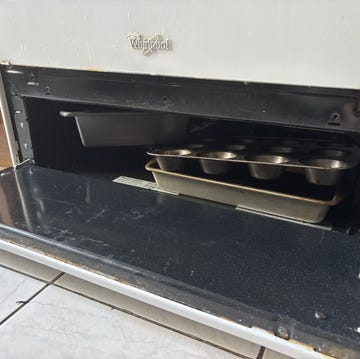Everything's better with butter—unless you just pulled a stick straight out of the fridge. Spreading cold butter on a piece of toast is nothing short of a sensory nightmare. Forgetting to bring your butter to room temp can bring your baking plans to a grinding halt. And making a compound butter with your favorite flavorings can't happen when your base is rock solid.
If you regularly indulge in a smear of soft, creamy butter, you may feel inclined to keep it on your counter so it's always ready to go. Some, however, can get squeamish about keeping their dairy products at room temperature out of fear of foodborne illnesses. So what is the real deal? Is it safe to store butter at room temperature?
There are some important caveats and considerations, but the short answer is yes. You can store butter at room temperature for longer periods of time than you would with other dairy products, but that doesn't mean it should sit on your counter forever. We're breaking down everything you need to know about storing butter correctly so you can spread without the risk of spoilage.
What Happens When You Store Butter At Room Temperature?
Butter is the result of churning, the process of separating milk or cream into its solid and liquid components. The solid part is the fat found naturally in the milk, while the remaining liquid it leaves behind is the buttermilk. That buttermilk, when fermented, becomes the product you use to make fried chicken or ranch dressing.
Without that liquid, the solid fat is significantly more shelf stable than when the milk was in its original state. The high fat content prevents bacteria growth more than other types of dairy. In the United States, the butter you can buy at the grocery store needs to have at least 80 percent fat.
While butter is less likely to support bacterial growth and become unsafe to eat, that doesn’t mean it can’t go bad. Instead of spoiling, the butter can become rancid after being left out at room temperature for more than a day or so. The continuous presence of oxygen will denature the fat molecules in the butter and change the chemical structure. It won’t hurt you like eating salmonella-contaminated eggs would, but it will taste bitter and a little sour.
How Do I Store Butter At Room Temperature?
Thankfully, there are kitchen tools you can use to keep your butter soft without inviting any extra oxygen. Butter dishes with lids will keep out the air and allow your butter to stay fresh for a few days.
Another tool that has been used for centuries is a butter crock. This ceramic gadget allows you to fill the bell-shaped top with butter and place it in a ceramic cup filled with a little bit of water. The water seals the container and keeps out oxygen and any pesky bacteria. If you replace the water once or twice a week, your butter will stay fresh and spreadable for up to month.
How Long Can Butter Last In The Fridge?
If you want to keep your butter for longer or don’t want to shell out money for another gadget, the fridge is your best bet. Unopened sticks of butter will last in the fridge for 3-4 months, and opened butter will last up to two weeks past the date printed on the package.












